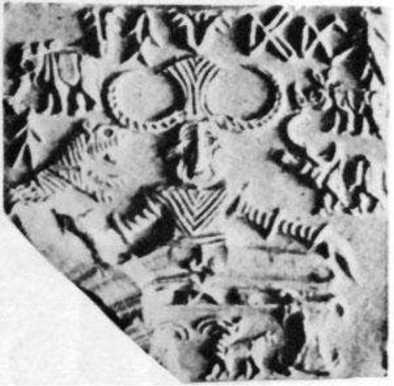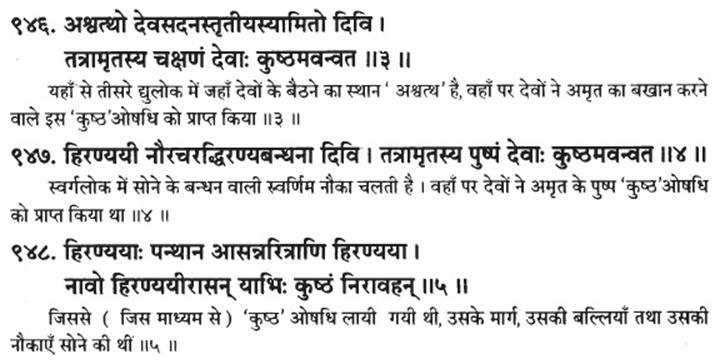The Birth & Death of Vedic Deities
by Sulaiman Razvi
A Short Analysis
God is the creator, God has power over all things, neither sleep overtakes him nor does he feel tired. But that’s not the case with Hindu deities. Hindu deities as depicted in Hindu scriptures were just like humans with some powers. Hindu deities fell ill, were subject to emotions, pain, hunger and even fear. These are not the characteristics of god almighty. Stories of Hindu gods are called mythology for a reason since there is no proof that they existed or that what is mentioned in Hindu scriptures really happened. No one knows who founded Hinduism or when exactly this religion was founded probably because it had a small smart and slowly it was influenced by other religions from which it appropriated many things as its own and gradually it became a religion with so many gods and scriptures. Vedic religion shares many similarities between Greek mythology probably because the Aryans came from Europe to India via the route of Central-Asia. In this journey, they took inspiration from many religions like Greek mythology and probably Zoroastrianism also or it could be that Zoroastrianism and Vedic religion were derived from one common religion. This is why Zoroastrianism too shares many similarities with Vedic religion. To be straightforward, most Hindu deities are man-made and most of them never existed. But the way Hindus venerate those gods despite knowing their stories is astonishing.
Brahma Vaivarta Purana, Ganesha Khanda chapter 18 mentions the curse of Kashyapa on Shiva for killing his son, as a result of the curse, Shiva beheaded his own son Ganesha. As mentioned in Devi Bhagavatam 4.25.58-61 Krishna was killed accidentally by an archer named Jara which was a result of a curse by a Brahmin Astavakra and even Krishna’s wives were abducted by bandits. Shiva Purana, Rudra Samhita 2, Yudha Khanda 5, Ch 23 states Vrinda was raped by Vishnu, as a result, she cursed Vishnu that in his incarnation his wife would be abducted.
This shows that sages were equally powerful as the gods who could curse the Bhagwans and make them suffer. Gods couldn’t protect themselves from curse then how can they protect humans? We have read in Killing Infidels in Hinduism article how helpless Bhagwans were in front of their ordinary human rivals that Bhagwans had to run away fearing for their lives, sometimes they were so scared that they shivered.
GODS FEELING ILL
Let’s leave aside scriptures for a moment, there were news reports about Lord Jagannath being ill for 15 days and even a doctor was called up to treat the Hindu Bhagwan, trustees requested air conditioners to keep Lord Ganesha cool during summer as coolers were not enough, VHP demanded warm clothes for Lord Rama’s idol during chilling winters in UP, Hanuman’s idol was dressed up as Santa Claus as to keep him warm during winters. Veda considers Ashwins as physicians of gods,
Atharva Veda 7.53.1 “As thou, Brihaspati, from the curse hast saved us, from dwelling yonder in the realm of Yama, The Asvins, leeches of the Gods, O Agni, have chased Death far from us with mighty powers.” Tr. Ralph T.H. Griffith
Satapatha Brahmana states that Indra suffered from Jaundice and was treated with Soma,
Satapatha Brahmana 1:6:4:9 “In the same way as the Soma stalk becomes strong (by being touched or sprinkled with water), so he (Indra) became strong (by the Soma being mixed with boiled milk) and overcame that evil, the jaundice…” Tr. Julius Eggeling
Atharva Veda states that Varuna had become impotent and his virility was later restored by Gandharvas,
Atharva Veda 4.4.1-7 “Thee, the plant, which the Gandharva dug up for Varuna, when his virility had decayed, thee, that causest strength, we dig up. Ushas (Aurora), Sûrya, (the sun), and this charm of mine; the bull Pragâpati (the lord of creatures) shall with his lusty fire arouse him! This herb shall make thee so very full of lusty strength, that thou shalt, when thou art excited, exhale heat as a thing on fire! The fire of the plants, and the essence of the bulls shall arouse him! Do thou, O Indra, controller of bodies, place the lusty force of men into this person! Thou (O herb) art the first-born sap of the waters and also of the plants. Moreover thou art the brother of Soma, and the lusty force of the antelope buck! Now, O Agni, now, O Savitar, now, O goddess Sarasvatî, now, O Brahmanaspati, do thou stiffen the pasas as a bow! I stiffen thy pasas as a bowstring upon the bow. Embrace thou (women) as the antelope buck the gazelle with ever unfailing (strength)! The strength of the horse, the mule, the goat and the ram, moreover the strength of the bull bestow upon him, O controller of bodies (Indra).” Tr. Maurice Bloomfield
In order to get a son, the Hindu god Krishna performed penance to please Shiva, eventually, Shiva was pleased with Krishna and bestowed on him a son. Krishna himself being a Bhagwan couldn’t produce a son and had to supplicate Shiva,
Mahabharata Book 13, Section 14 “…How great is the puissance of the high-souled Mahadeva,–that original cause of the universe,–has been seen with his own eyes by Hari who himself transcends all deterioration, on the occasion of his penances in the retreat of Vadari undergone for obtaining a son. I do not, O Bharata, behold any one that is superior to Mahadeva. To expound the names of that god of gods fully and without creating the desire of hearing more only Krishna is competent…” Tr. Kisari Mohan Ganguli
GODS ARE BORN
We know that gods like Krishna and Rama were born to human parents as per Hindu scriptures but even Vedic deities like Indra, Varuna had taken birth. Veda states that gods came from non-existence also states that gods were born after the creation of the universe and is confused about who really created the universe,
Atharva Veda 10.7.25 “Great, verily, are those Gods who sprang from non-existence into life. Further, men say that that one part of Skambha is nonentity.” Tr. Ralph T.H. Griffith
Rig Veda 10.129.6 “Who verily knows and who can here declare it, whence it was born and whence comes this creation? The Gods are later than this world’s production. Who knows then whence it first came into being?” Tr. Ralph T.H. Griffith
GODS ATTAIN IMMORTALITY/GODHEAD
It is said that Vedic deities were mortal so in order to attain immortality they drank Soma,
Rig Veda 9.106.8 “Thy drops that swim in water have exalted Indra to delight: The Gods have drunk thee up for immortality.” Tr. Ralph T.H. Griffith
Immortality was also bestowed by other deities, such as,
Atharva Veda 4.14.1 “The Goat was verily produced from Agni. Through sorrow he beheld, at first, his father. Through him at first the Gods attained to godhead, and, meet for sacrifices, were exalted.” Tr. Ralph T.H. Griffith
Rig Veda 10.167.1 “This pleasant meath, O Indra, is effused for thee: thou art the ruling Lord of beaker and of juice. Bestow upon us wealth with many hero sons: thou, having glowed with Fervour, wonnest heavenly light.” Tr. Ralph T.H. Griffith
GODS DIE
Even the Vedic gods had to taste death after all they were false gods, Atharva Veda states that Yama was the first one to die,
Atharva Veda 18.3.13 “Worship with sacrificial gift King Yama, Vivasvān’s son who gathers men together, Yama who was the first to die of mortals, the first who travelled to the world before us.” Tr. Ralph T.H. Griffith
Rig Veda 10.13.4 “He, for God’s sake, chose death to be his portion. He chose not, for men’s good, a life eternal They sacrificed Bṛhaspati the Ṛṣi. Yama delivered up his own dear body.” Tr. Ralph T.H. Griffith
Despite attaining immortality, Vedic deities had to taste death,
Atharva Veda 2.1.5 “I round the circumjacent worlds have travelled to see the far-extended thread of Order. Wherein the Gods, obtaining life eternal, have risen upward to one common birthplace.” Tr. Ralph T.H. Griffith
Satapatha Brahmana has a different version, it states that Bhagwans were frustrated with fulfilling wishes of people so to get rid of this, they ran to heaven,
Satapatha Brahmana 2.3.4.4. “Then as to why he should not approach them. Now in the beginning both the gods and men were together here. And whatever did not belong to the men, for that they importuned the gods, saying, ‘This is not ours: let it be ours!’ Being indignant at this importunity, the gods then disappeared. Hence (it may be argued) one should not approach (the fires), fearing lest he should offend them, lest he should become hateful to them.” Tr. Julius Eggeling
Rama is also said to have died by committing suicide,
Valmiki Ramayana, Uttara Khanda, chapter 110 “When he had proceeded about six miles, the Pride of the Raghus beheld the sacred waters of the Sarayu flowing westwards, eddying and rippling in their course, and he went on further to the Goprataraka Ghata, his subjects thronging round him on all sides. At that momemnt, as Kakutsth was preparing to ascent to heaven. Brahma, the Grandsire of the World, surrounded by the Gods and the illustrious Rishis adorned with jewels, appeared seated in their aerial chariots, and the whole firmament glowed with a transcendent splendour…Thereafter to the sound of a myriad instruments and the singing of the Gandharvas and Apsaras, Rama stepped into the waters, whereupon the Grandsire, from on high, uttered these words: ‘Hail O Vishnu! Hail O Raghava! With thy God-like brothers, now enter thine eternal abode! Return to thien body if thou so desirest, O Long-armed warrior! Occupy the realm of Vishnu or the shining ether…Hearing these words of the Grandsire, the supremely virtuous Rama formed his resolution and entered Vishnu’s abode in his body with his younger brothers…” Tr. Hari Prasad Shastri
Krishna was killed by a hunter named Jara,
Vishnu Purana book 5, chapter 37 Respecting the words of the Brahman, the imprecation of Durvásas, the illustrious Krishńa sat engaged in thought, resting his foot upon his knee. Then came there a hunter, named Jará, whose arrow was tipped with a blade made of the piece of iron of the club, which had not been reduced to powder; and beholding from a distance the foot of Krishńa, he mistook it for part of a deer, and shooting his arrow, lodged it in the sole. Approaching his mark, he saw the four-armed king, and, falling at his feet, repeatedly besought his forgiveness, exclaiming, “I have done this deed unwittingly, thinking I was aiming at a deer! Have pity upon me, who am consumed by my crime; for thou art able to consume me!” Bhagavat replied, “Fear not thou in the least. Go, hunter, through my favour, to heaven, the abode of the gods.” As soon as he had thus spoken, a celestial car appeared, and the hunter, ascending it, forthwith proceeded to heaven. Then the illustrious Krishńa, having united himself with his own pure, spiritual, inexhaustible, inconceivable, unborn, undecaying, imperishable, and universal spirit, which is one with Vásudeva, abandoned his mortal body and the condition of the threefold qualities.

